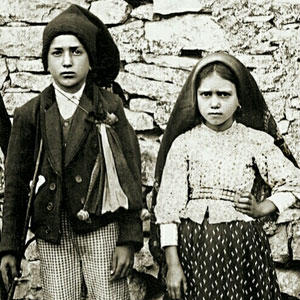“Unless you change and become like little children,” our Lord tells us, “you will never enter into the kingdom of Heaven.” (Mt 18:3)
It’s with that in mind, that I propose that ‘The Little Drummer Boy’ is worth contemplating for its spiritual truths. The story itself is fictional, but its lessons are real. We’d all do well, I think, to imitate the little drummer boy.
Come they told me, pa rum pum pum pum
A new born King to see, pa rum pum pum pum
Our finest gifts we bring, pa rum pum pum pum
To lay before the King, pa rum pum pum pum,
rum pum pum pum, rum pum pum pum,So to honour Him, pa rum pum pum pum,
When we come.
Anyone who celebrates Christmas with Mass already resembles the little drummer boy. Why go to Mass, except to honour our new born King?
Baby Jesu, pa rum pum pum pum
I am a poor boy too, pa rum pum pum pum
The little drummer boy immediately sees that he and Jesus share something in common. “I am a poor boy too.” It requires child-like boldness to compare oneself to God, but that’s the point of Christmas! God became a man, so that men and women can become like God.
There are many episodes in the Gospel which indicate that Jesus encourages this sort of bold familiarity. He defends the woman who anoints his feet with perfume and tears. He insists the children come to him, so that he can lay hands and pray over them.
When Jesus meets Zaccheaus in a tree, he invites himself to his place for dinner. It takes a certain chutzpah to invite oneself to someone else’s house! When the apostles fall short of our Lord’s expectations, he doesn’t hide his frustration. He sighs, and he rolls his eyes, and he chastises them.
But none of this is obnoxious. It’s borne of love — the sort of love which only occurs in very close relationships. We save our ‘best selves’ for strangers; but it’s the people we live with; the people we love, who see our true selves. This is the way Jesus wants us to approach him.
I have no gift to bring, pa rum pum pum pum
That’s fit to give a King, pa rum pum pum pum,
rum pum pum pum, rum pum pum pum,Shall I play for you, pa rum pum pum pum,
On my drum?
The little drummer boy recognizes his poverty. What can he possibly offer God? What can you and I offer?
But he is not discouraged by his poverty, and nor should we. He offers to play his drum. We offer our time and our presence here, to worship him.
Mary nodded, pa rum pum pum pum
Like the little drummer boy, we should look to Mary!
Every Christian home should have an image of our Lady — a picture, or a small statue — and not in a forgotten corner, either. It should be somewhere prominent, so that whenever anyone enters that room, they can look to Mary, and nod to her as she nodded to the little drummer boy.
This is a very simple way of praying. Placing flowers in front of that image, to honour our Lady, is another simple prayer, which is easily taught to children. And never forget the power of the rosary.
“Do whatever he tells you,” Mary told the servants at the wedding feast in Cana. She says that to us too. “Do whatever he tells you.”
The ox and lamb kept time, pa rum pum pum pum
I played my drum for Him, pa rum pum pum pum
I played my best for Him, pa rum pum pum pum,
rum pum pum pum, rum pum pum pum,Then He smiled at me, pa rum pum pum pum
Me and my drum.
Isn’t that a beautiful conclusion? “Then he smiled at me . . . me and my drum.” This should be our goal too — to please our Lord. To give him cause to smile.
He’s smiling now, because here we are. The beauty and scandal of the liturgy is that it has no utility. It has no earthly purpose or benefit. It’s focused soley on God. You and I come to church — at great cost to comfort and convenience — not for ourselves, but to honour the birth of Jesus. To give him praise and worship.
God so desires our company and affection, that he became one of us — born in a stable on a cold winter’s night, so that you and I might approach him with confidence.
He desires our presence so much, that he becomes present under the appearance of bread and wine, so that we might visit him; receive him; enter into communion with him.
“When you approach the tabernacle, remember that he has been waiting for you for twenty centuries.”
St Josemaría Escrivá.






Recent Comments